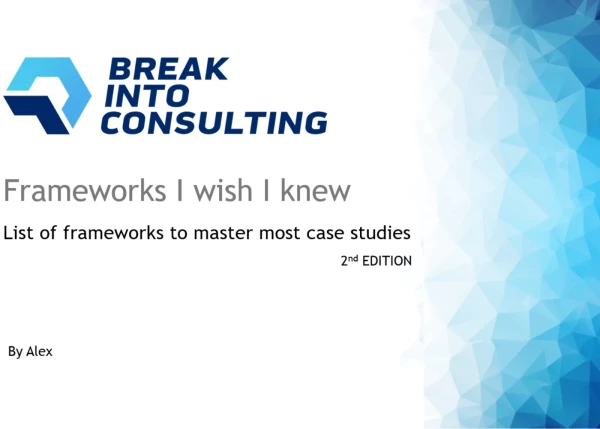Hi there - I timed myself on writing out a framework and spent 3 minutes in total, this was split between initially thinking about the structure then writing it out. Is 3 minutes too long? I've read elsewhere on PrepLounge that 1-2 minutes is typical. I'm wondering if I need to speed up in order to avoid standing out for 'being slow'.
Any advice much appreciated
p.s. I don't think my frameworks are exceptionally detailed, it's more likely that I am a little bit slower at assimilating information in a pressured situation, so I think I'm taking a bit longer.




